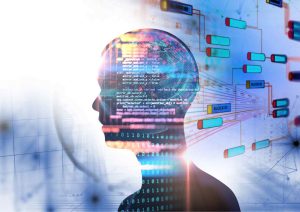In today’s fast-paced, technology-driven world, software has emerged as the invisible hand that orchestrates our interactions, drives business growth, and shapes our daily lives. It is the lifeblood of the digital age, powering everything from the intricate algorithms that guide self-driving cars to the user-friendly apps that connect us with friends and family across the globe.
The Diverse Realm of Software Development
The world of software development is a vast and multifaceted landscape, encompassing a spectrum of roles and responsibilities. At the core lie three fundamental pillars: backend development, frontend development, and application development. Each plays a distinct yet complementary role in bringing software to life.

Backend Development: The Powerhouse Behind the Scenes
Backend developers, the architects of the digital realm, are responsible for building the server-side logic that powers websites and applications. They craft the intricate code that handles data storage, user authentication, and the seamless communication between the user interface and the underlying data systems. Their work ensures that the software operates smoothly and efficiently, handling user requests and processing information behind the scenes.
Frontend Development: Crafting User Experiences
Frontend developers, the artists of the digital world, are responsible for crafting the user interface (UI) that interacts with users. They wield tools like HTML, CSS, and JavaScript to design and implement the visual elements, ensuring that websites and applications are not only functional but also aesthetically pleasing and intuitive to use. Their work shapes the user experience, making it easy and enjoyable for people to interact with software.
Application Development: Bringing Ideas to Life
Application developers, the visionaries of the digital world, bridge the gap between user needs and software solutions. They conceptualize, design, and develop software applications that address specific problems or fulfill particular needs. Their work encompasses understanding user requirements, translating them into technical specifications, and orchestrating the development process from ideation to deployment.
Data Science and Analysis: Unlocking Insights from Data
Data science and analysis have emerged as critical components of the software development landscape. Data scientists, the detectives of the digital world, are responsible for collecting, cleaning, and analyzing vast amounts of data to extract meaningful insights. They apply statistical methods, machine learning algorithms, and data visualization techniques to unearth patterns, trends, and correlations that inform decision-making and drive innovation.
Artificial Intelligence and Machine Learning: The Next Frontier
Artificial intelligence (AI) and machine learning (ML) are rapidly transforming the software landscape, introducing new capabilities and automating complex tasks. AI algorithms are being embedded into software applications to enable intelligent features such as natural language processing, image recognition, and predictive analytics. ML models are being trained on massive datasets to learn patterns and make predictions, driving advancements in fields like personalized recommendations, fraud detection, and risk assessment.
Software's Ubiquitous Impact: Powering Businesses and Beyond
The impact of software extends far beyond the confines of the tech industry. It has revolutionized the way businesses operate, enabling them to streamline processes, enhance communication, and reach a wider audience. Ecommerce platforms like Amazon and eBay have transformed retail, while social media giants like Facebook and Twitter have reshaped communication. In healthcare, software has led to advancements in medical imaging, patient monitoring, and drug discovery.
Small Businesses: Big Gains with Software
Even for small businesses, software has become an indispensable tool for growth and success. Inventory management software streamlines stock control, while customer relationship management (CRM) systems help businesses nurture customer relationships. Accounting software simplifies financial management, and marketing automation tools automate email campaigns and social media engagement.
Startups: Software as the Foundation of Innovation
For startups, software is the very foundation of innovation. It allows them to test new ideas rapidly, gather user feedback, and iterate on their products quickly. Cloud-based software solutions provide startups with the flexibility and scalability they need to grow without incurring significant upfront costs.
Fintech: Software Driving Financial Transformation
The financial industry has undergone a seismic shift driven by software. Fintech companies are disrupting traditional banking models with innovative solutions powered by software. Mobile banking apps have made financial transactions easier than ever, while peer-to-peer lending platforms have democratized access to loans.
Medical Technology: Software Saving Lives
Software is revolutionizing the medical field, leading to breakthroughs in diagnostics, treatment, and patient care. Medical imaging software provides doctors with detailed insights into the human body, while surgical robots perform minimally invasive procedures with precision. Artificial intelligence is being harnessed to analyze vast amounts of medical data, leading to personalized treatment plans and improved patient outcomes.






